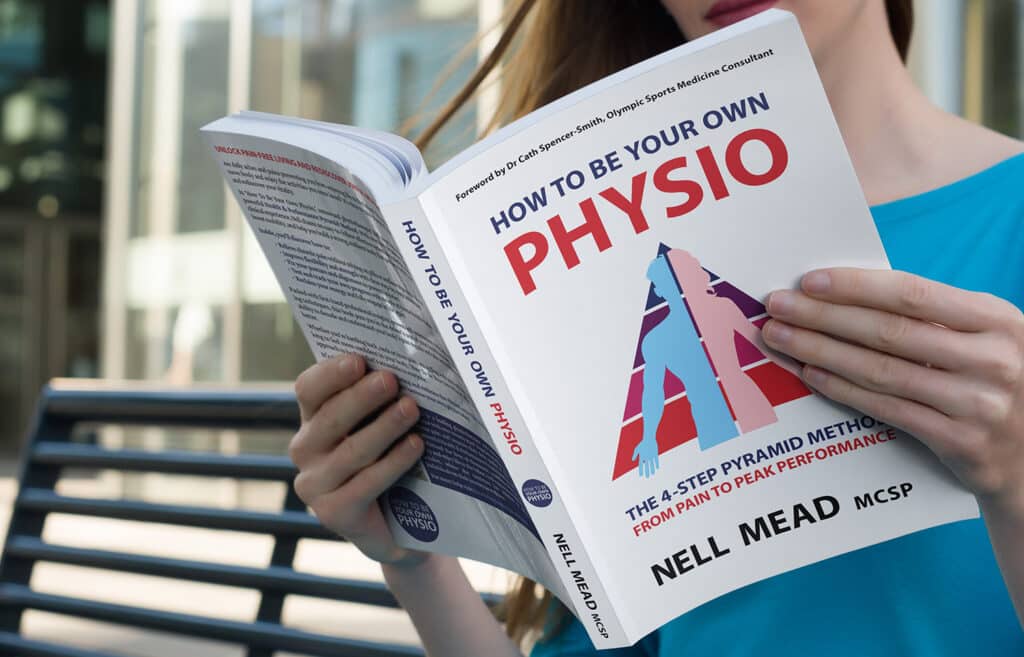It started with an intriguing email…
“We are reaching out to professionals like you, with experience in the management of osteoarthritis, to allow your patients to benefit from the unique medicine they otherwise may not have access to…”
Well, that was an intriguing email to receive, a couple of weeks ago, from a company called St Pancras Clinical Research. It’s not that unusual for research companies to contact me asking if I have patients who might be willing to take part in clinical trials; it is unusual for the clinical trials to potentially be of direct relevance and help to my patients, and so I agreed to head over to their head office (which is, confusingly, in the Barbican) where I met several of their clinical and administrative staff.
Painkillers currently used to treat arthritis
The types of painkiller currently prescribed and used to treat the pain of arthritis can be split into three groups:
- aniline analgesics (paracetamol)
- anti-inflammatories (such as ibuprofen, diclofenac or naproxen)
- opioids (such as codeine, tramadol and morphine)
The trouble is that paracetamol and anti-inflammatories aren’t generally very effective at treating the pain of osteoarthritis; and opioids should be used with great caution as they often come with unpleasant side effects (not to mention the risk of addiction).
But osteoarthritis can be a very painful and debilitating condition, which (according to NICE) affects 8.75 million people in the UK, and is responsible for over 3 million GP appointments and 115,000 hospital admissions each year. Around 18% of adults over the age of 45 in the UK have sought medical treatment for arthritis of the knee alone!
In 2010, there were 116,000 hip and knee replacements carried out in UK hospitals at a cost of £890 million; and NICE estimates that osteoarthritis costs the UK approximately 1% of GDP each year (the latest available figures for GDP are from 2020, and if the estimates are correct, then osteoarthritis cost the UK economy £27 billion). I genuinely can’t wrap my head around these figures but… it’s a lot!
These sorts of numbers are pretty exciting for pharmaceutical companies, who are vying to be the first to find a really effective drug that will help people cope with the pain of arthritis. But before you can sell medication, you have to prove that it works and that it’s safe – and that’s where clinical trials come in.
Future drugs to treat the pain of arthritis
In the early 2010s, Pfizer thought they had a winner – a drug called Tanezumab, which acted on a specific pain mediating compound called Nerve Growth Factor (NGF). NGF is a protein that binds to pain receptors inside nerve cells, making nerves more sensitive; and people with osteoarthritis tend to have high levels of NGF. Tanezumab is a type of drug called an anti-NGF monoclonal antibody, which essentially means that it prevents the NGF from binding to the pain receptors. The ideas is that if the NGF can’t bind to the pain receptors, your nerves won’t be as sensitised, so you won’t feel the pain of the osteoarthritis.
In clinical trials it was found that Tanezumab did effectively reduce the pain of the arthritis; but unfortunately it had a safety problem: people who took the Tanezumab seemed to need joint replacements earlier than people who didn’t take it! So Tanezumab was not approved for use.
Now, however, AstraZeneca are trying again. They are combining the anti-NGF that was in the Tanezumab, with another type of drug called anti-TNF. TNF stands for Tumour Necrosis Factor and is a type of protein that coordinates the process of inflammation in your body. So anti-TNF is a type of biologic anti-inflammatory. The combination currently goes by the catchy name of MEDI7352, and St Pancras Clinical Research have been tasked with carrying out the Phase 2B Clinical Trial. The St Pancras team tell me that so far, it appears to be going well, with subjects achieving good levels of pain relief, without the safety issues of Tanezumab.
Taking part in the trial
To be eligible to take part, you must be aged between 18-80, have been diagnosed with osteoarthritis of the knee, and be struggling to find adequate pain relief.
The way the trial works is that – once you’ve made contact with them and you’ve both agreed that you could be a good fit, they’ll ask you to keep a pain and sleep diary, and then send you for some screening tests: blood tests, X-rays and MRI scans.
If the screening confirms that you are a good fit, and that there’s nothing else going on with your knees that might make you ineligible to be a part of the trial (such as rheumatoid arthritis, gout or covid), you’ll be allocated to one of five groups and offered a 12 week course of injections. People allocated to four of the five groups will be injected with the real biologic agent, at one of four different doses; and people allocated to the fifth group will be injected with a placebo. You won’t know which group you’ve been allocated to (and nor will the doctors in charge of the trial); but you’ve got an 80% change of receiving the real medication. If you’re one of my patients, we can continue with physiotherapy throughout the trial.
After the 12 weeks of the trial, the St Pancras team will reassess you, and they’ll keep checking in with you for the next 20 weeks, to follow your progress.
Why am I interested in this?
From an altruistic perspective, taking part in clinical trials is a great thing to do. As we’ve all seen over the past couple of years, the development of new drugs can make a massive difference to people’s lives.
However, from a more self-interested perspective, if you are one of the 80% of people who receives a dose of the real MEDI7352, you could get a good level of pain relief for at least 3 months, the type of pain relief you can’t currently get from any type of medication that’s already on the market. And one of the issues that frequently hinders physiotherapy treatment is pain. So if you can reduce your pain levels, then you should be able to respond more effectively to physiotherapy – meaning that once your 12-week part in the trial is over, you should be stronger and more functional – potentially reducing your arthritis symptoms for considerably longer than the 12 weeks of the trial. And of course, if we learn that MEDI7352 does work for you, then whenever it does come on the market (assuming it does) then you should be able to take it again in the knowledge that it will help.
Nothing is without risk – you could of course end up with 12 weeks of placebo injections – but if you feel the risk is worth taking, then I would be very happy to introduce you to the St Pancras team to start the screening process.







